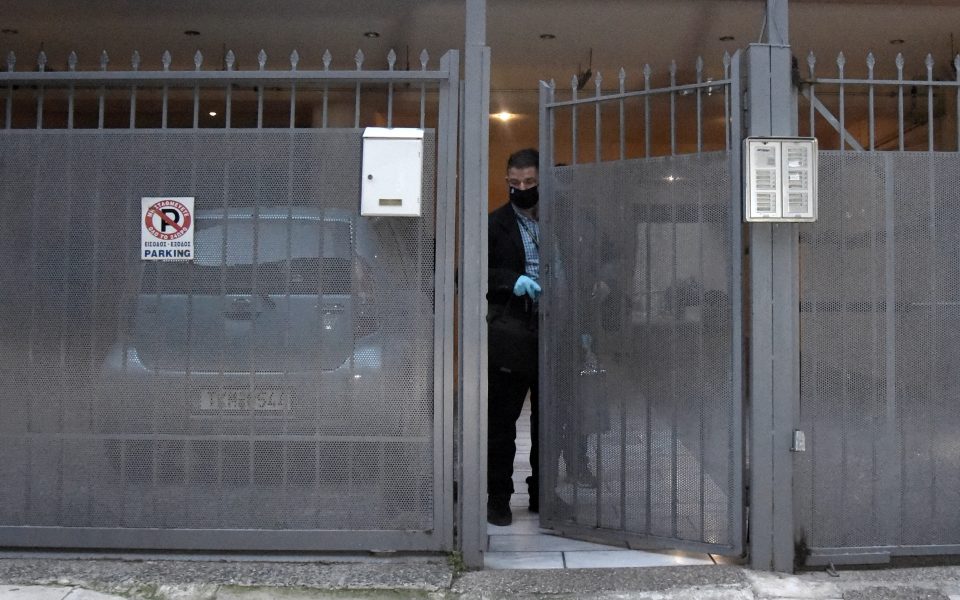‘For my friends, everything; for my enemies, the law’

I am increasingly reminded these days of a quote by Peru’s General Óscar Benavides: “For my friends, everything; for my enemies, the law.”
I won’t remind readers of the appointments of octogenarians and retired officers to the management of public hospitals or of failed politicians as ministerial advisers (though I still want to know what exactly our taxes are paying them to do), or question how ministries appoint their general secretaries, where demands for openness and meritocracy were ultimately little more than pretexts to criticize SYRIZA. We will let all that stay in the past and stick to 2021.
The year started with that tomfoolery of government officials jumping the line to get themselves vaccinated against Covid – some even brought their mothers in for a jab (such good boys!). Then we had those delightful images of the prime minister dining with a crowd on Icaria at a gathering organized by the local mayor.
There is something almost poetic about it, as the government celebrates the bicentennial of the Greek Revolution by reminding us how little the mentality of politicians has changed and how deeply meta-Ottoman our power structures still are.
But the government’s handling of the Lignadis rape scandal undoubtedly changed the tone of the conversation. The problem does not lie in the legal aspects of the affair; it will be up to the courts to decide whether the former National Theater director is guilty as charged or not. What is at issue is how those in power treat their friends. How they promote them, protect them and cover for them – and how even this is usually done badly. We were witness in the Lignadis case to this preferential treatment reserved for friends, from the very start of the affair and almost to the end.
It was, moreover, a lot more than run-of-the-mill cronyism, exposing something deeper: an expansive network of mutual assistance and support of social elites and political players.
Sure, this is what elites do all over the world. They make calls, they have parties, they mix and mingle, they do something for you if you do something for them. Social inequality, you see, is not only defined by wealth, but also by the breadth of your connections.
The difference between developed democracies and “meta-Ottoman” states, however, lies in the ability of the rule of law and the institutions to determine effective and transparent selection procedures and contain the discrimination and inequalities reproduced by personal networks.
For the past two centuries governing officials in Greece have, unfortunately, regarded authority as – among a lot of other things – a means of doing favors for friends. This is often not maliciously done, as politicians tend to believe that they and their friends are qualified for the job. So, why invite a stranger when the best person is right there, beside you?
This brings us to Dimitris Koufodinas. Regardless of how we understand the legal parameters of the issue, we cannot dispute that the government’s handling of it demonstrates an extremely intractable stance. It is obvious, to my eyes at least, that the government is invoking a string of legal arguments to hide (in a manner of speaking) its need for vengeance against this particular inmate. Ultimately, if power is a big hug for friends, it’s the long arm of the law for enemies.
As columnist Costas Iordanidis wrote in Kathimerini on February 25, neither the Lignadis nor the Koufodinas affairs would have assumed the proportions they did had the government followed the proper procedures. In the former case, it allowed personal choices to determine Lignadis’ appointment to the Greek National Theater. In the latter, there would have been no issue if the government upheld the law it passed itself, which states that inmates are transferred back to the prison they were first taken from.
“It appears as though certain people forgot that established procedures and laws exist not only to safeguard the rights and obligations of citizens, but are also a safety net against abuses of power. This, however, assumes that we’re talking about politicians and not zealots whose aim is to convert or annihilate their rivals,” he adds.
Professor Nikos Marantzidis teaches political science at the University of Macedonia.




